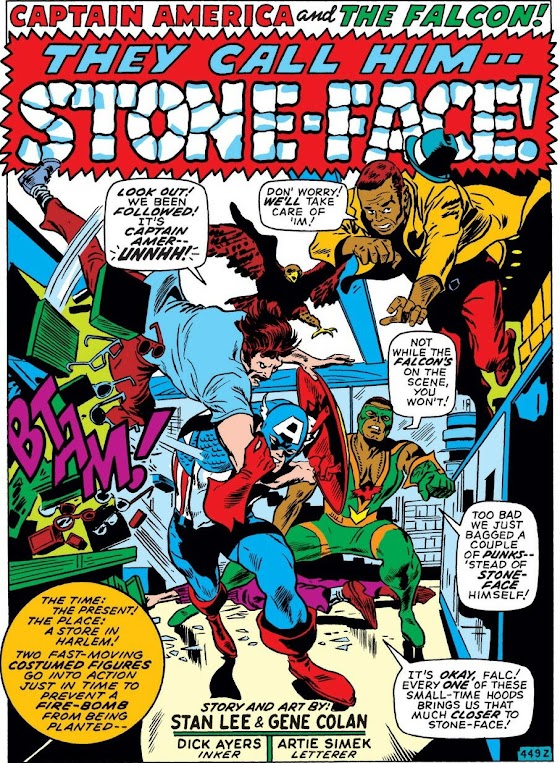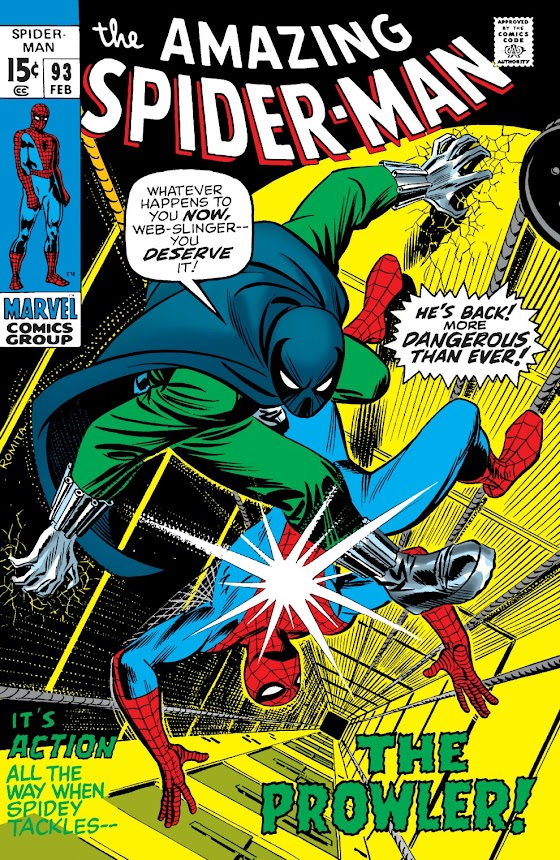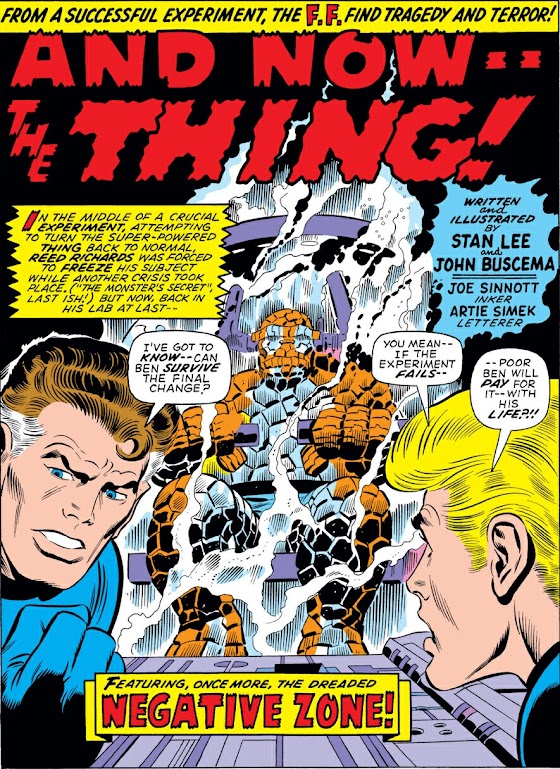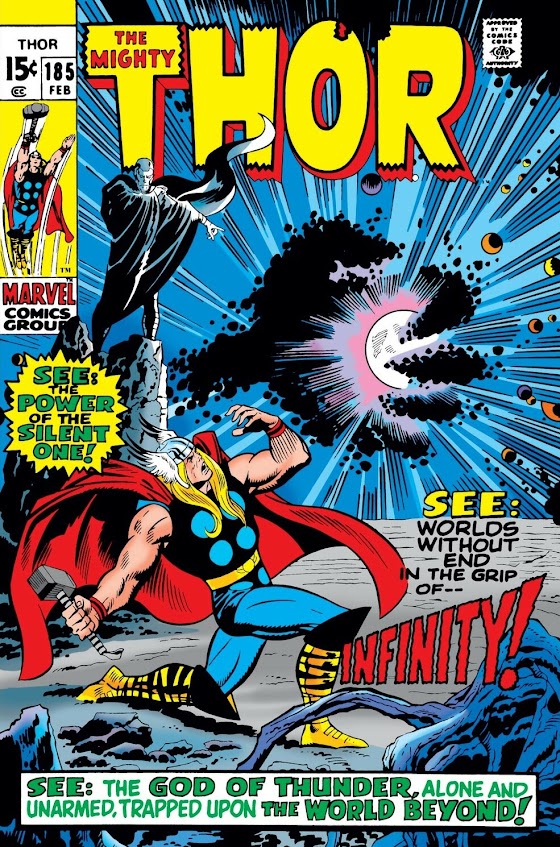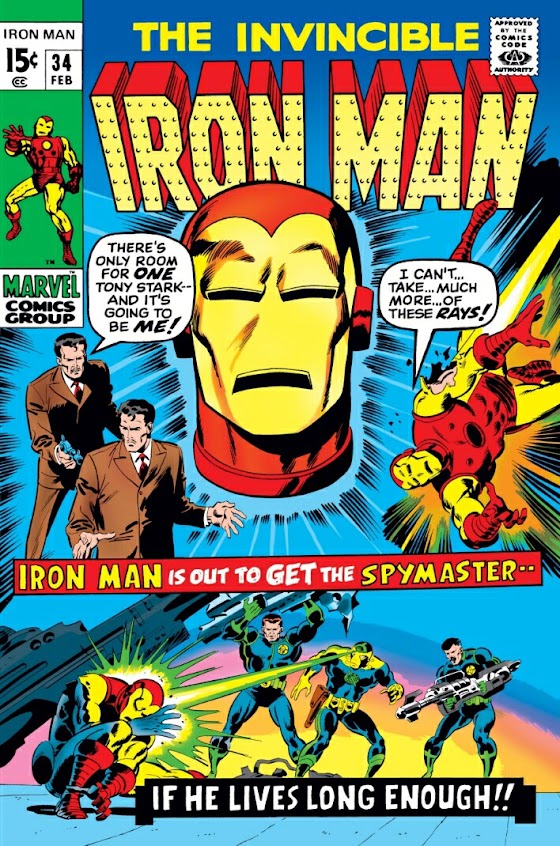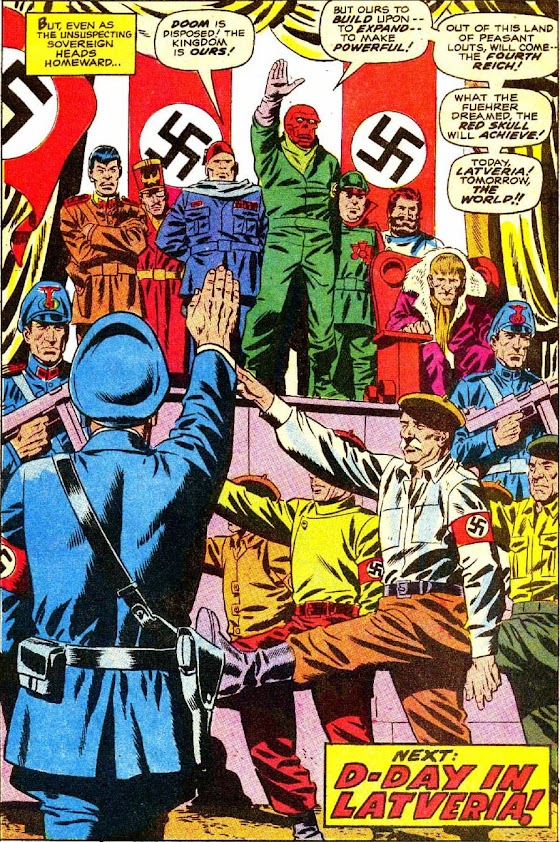Tuesday, 31 December 2019
General: Top Films of 2019
This is my personal list of the 10 best films of the year. Before you read it and angrily write that I shouldn't have omitted <fill-in-the-blank>, let me make a few remarks:
To qualify for the list I must have seen the film in the cinema in 2019. Any film that I didn't see will not be included. Maybe I decided not to see a film. Maybe I missed a film because I was sick in bed and couldn't go out. Maybe a film wasn't shown in my local cinemas. Whatever the reason, if I didn't see a film in the cinema it won't be in the list.
By the same reasoning, it's relevant when I see the film. If a film is shown over the New Year period from December to January the film might be included in one year or the other, depending on when I go to see it. In the same way, some films, particularly the Oscar contenders, are released in the USA in one year but not shown in other countries until the next.
1. Avengers: Endgame
This is the film that the MCU has been building up to for 11 years, the climax of 23 films. There was so much potential for it to go wrong. I'm glad it didn't.
2. Joker
For me this was the surprise hit of the year. It was much better than I expected. Let's hope it gets a few awards at the 2020 Oscars.
3. Ip Man 4
This is a last minute addition, just when I thought my list was finalised.
4. Happy Death Day 2U
A brilliant sequel that changes the direction set by the first film. "Happy Death Day" should have been in my 2017 top film list, but I didn't appreciate it until I watched it on disc a year later.
5. Once upon a time in Hollywood
This is one of Quentin Tarantino's weakest films, but as I've said before, Tarantino's worst films are better than the best films of other directors.
6. One Cut of the Dead
Technically, this is a 2017 film, but it took a long time for it to arrive in German cinemas.
7. Rocketman
I like the music in "Bohemian Rhapsody" more, but this is a better film.
8. Green Book
This was the winner of the Best Film Oscar at the 2019 Academy Awards. It's the best film to win the award for years, in my opinion.
9. Fighting with my Family
It's possible that this film should be higher in my list. I'll watch it again soon, but my list is final, I shan't change it any more.
10. Lords of Chaos
That's interesting. This year there are four true stories in the seventh to tenth positions in my list. I've always had a weakness for true stories.
That's my list for this year. I went to the cinema 130 times, and I've seen 121 films. (The films that I saw twice were "Avengers Endgame", "Captain Marvel", "Green Book", "Joker", "Once upon a time in Hollywood", "Parasite", "Rocketman", "Spider-Man Far From Home" and "Yesterday").
I welcome top 10 lists from my readers. Please leave them in the comments.
Word of the Day: BALL
The word of the day is BALL. Singular. As you should know by now, the word of the day always has exactly four letters.
My word of the day posts should come with a government health warning. If you stare at Ivy's face for too long you'll fall under her spell.
Saturday, 28 December 2019
Word of the Day: WINE
The word of the day is WINE.
Do you like Ivy's television set? I like the curves. It's an old photo from May 2019, so she deserves an upgrade. Go to Ivy's Twitter page and ask her how much money she needs for a new television. She's not the sort of girl who's satisfied with small things.
Thursday, 26 December 2019
Ip Man 4 (5 Stars)
This is a film that was sprung on me. I didn't know that it had been made, and I didn't even know it was planned, until I saw it advertised at Cineworld Broad Street yesterday. It would only be screened once, today at 7:30 pm, so I knew I had to see it.
I was lucky to get a seat. I arrived an hour early, and most of the seats were booked, forcing me to sit in the fourth row, further forward than I prefer to sit. When the film began the whole cinema was packed, including every seat on the front row. I hope the film's success will persuade the cinema to show it again next week.
I expected "Ip Man 3" to be the last film in the series. Donnie Yen didn't want to make another film after "Ip Man 2" and had to be persuaded by a generous payment. Obviously he's been bribed again, which I don't mean in a bad way. The film series needed closure.
"Ip Man 4" has a lower key than the previous films, and it's more emotional. At the beginning of the film Ip Man is told that he has throat cancer, which casts a shadow over the whole film.
Most of the film takes place in America, although it was actually filmed in northern England. That must have been a cheaper filming location, and it was excellently suited for reproducing 1964 America. Ip Man travels to San Francisco to find a suitable private school for his rebellious son, Ip Ching. He's surprised to find several of his old friends living in America, friends that we know from the earlier films. He visits the Chinese Benevolent Association (CBA) to request a letter of recommendation for the school, but this is conditional on him telling his former student, Bruce Lee, to stop teaching martial arts to Americans. Ip Man refuses, and he doesn't get the letter his son needs.
The Chinese complain that the Americans (i.e. the white Americans) are racists towards the Chinese, but it's mutual. The Chinese refer to the Americans as whiteys. Only Ip Man stands above the racial disputes and wants all to get along with one another in peace. He thinks that Americans can benefit from Chinese culture.
Can the Chinese also benefit from American culture? Yonah, the daughter of the president of the CBA, is a high school cheerleader, much to the disgust of her father. She finds cheerleading more interesting than martial arts, and she even wants to perform a cheerleading dance at the Chinese Midsummer Festival. She's right. Every culture has its strengths, and we should keep an open mind about sampling what other countries have to offer. Even cheerleading.
The main tension in the film is brought on by the attempt to introduce Chinese martial arts into the training of the American army. The gunnery sergeant refuses, saying that karate is superior to Chinese fighting styles. Wait... isn't karate originally Chinese? According to Wikipedia it was developed in the Ryukyu Kingdom, which changed hands between China and Japan several times. Karate certainly isn't a white American fighting style.
This is definitely the final Ip Man film. It neatly closes the series. I greatly enjoyed the film, and it's a last minute addition to my top 10 film list for 2019.
Labels:
CINEMA,
Donnie Yen,
Foreign: Chinese,
Scott Adkins
Word of the Day: SALE
The word of the day is SALE.
When I first made my word of the day posts in September and October this year, I decided to spice them up by adding a photo of a pretty girl. After all, it's boring just looking at a photocopied bus ticket. The model I picked was the YouTube vlogger Ifrit Aeon. There was no reaction at all to my posts, so I decided to try someone else. I picked the 19-year-old online dominatrix Ivy Mae. The results were different. Within three days I had a comment from someone who found her "stunningly gorgeous". I agree. There's something about her face that is deceptively alluring.
In the photo above Ivy is lying surrounded by $20 bills. In case you think that's all she has, check out these selfies that she made in her car.
If you want to see more of beautiful Ivy, please follow her on Twitter.
Wednesday, 25 December 2019
Off-Topic: Universal Basic Income
1. Introduction
This is a topic very close to my heart that I've wanted to write about for years. I've discussed it with friends, of whom some agreed with me and some didn't. Maybe minor details of my plans can be changed, but I believe that a Universal Basic Income is the only viable solution for today's problems. It might be seen by some as a form of radical socialism, but if you listen to me with an open mind you'll see that I'm right.
For those who have never heard of it, the concept behind Universal Basic Income, which I'll refer to henceforth as UBI, is that everyone should be paid an amount of money, the same amount of money, regardless of his wealth or social standing. Is it fair that people should receive something for nothing? I say Yes. Everyone is put on this Earth against his will. Everyone has three basic needs:
1. Food
2. Clothing
3. Somewhere to live
I'll add a fourth category, which I'll deal with separately:
4. Healthcare
These four things are basic human rights. In my opinion it's immoral that any of these should be withheld from anyone who is incapable of paying for them because he's unwilling or unable to work. Everyone should be given enough money to pay for the first three items before the question of work is even raised. Healthcare is different, because the needs vary greatly. Some people are healthy, while others aren't, so the amount needed is different for everyone. The money given for the first three items can be the same for everyone.
UBI has to be dealt with on a national level, not globally. Some countries might implement UBI quickly, while others wait to see the results in foreign countries. Some countries might have political systems which refuse to implement UBI under any circumstances. I'm writing my thoughts with my home country, England, in mind, but they can easily be adapted to any other country.
2. The Past
There have always been differences between the rich and the poor. In the past there were systems of slavery and serfdom. A slave was a poor person forced to work for his rich master without any payment, simply to make his master even richer. In most cases the slave's basic needs (1 to 3, as listed above) were provided, but at such a low level that he enjoyed no comfort.
Serfdom was one step above slavery. The serf was given freedom to earn his own money, of which he had to give an amount to his rich master. He was allowed to own property, but the master could reclaim the property from him if he didn't pay enough. It was very difficult for a serf to leave his master and move to a different place. In theory, he was allowed to buy his freedom, but in practice it was impossible to earn enough for this privilege, so families were locked into serfdom under a single master for generations.
3. The Present
Today people are free to live and work wherever they want. That's what we're told. But is it true? Those of us who have been blessed with above average intelligence or other capabilities can apply for jobs anywhere in the country, or even abroad. But what about the rest of us? People are stuck in towns or villages with no way to get out. Many young people carry on in their parents' careers, because they have no chance to do anything else. Others accept jobs they don't enjoy for poor wages. Worst of all are the towns dominated by a single large employer, such as a coal mine or a steel works. People know from an early age that they'll either work for this employer, or at best they'll work in a service industry working for the employees of the big company.
When a person is forced to do a job he doesn't want to, because the alternative is starvation, it's little more than slavery. The big companies and their rich owners have all the power.
4. The Problems
Things are getting worse from year to year. Ironically, the problems are being caused by scientific and technological progress. The biggest problem is overpopulation. In past centuries, the population was culled by sickness. Medical advances have prevented the plagues that wiped out millions, and minor illnesses are less likely to be fatal. Fifty years ago the average life expectancy in the UK was 68 years, today it's 81. People are being kept alive longer, boosting the population. In previous centuries there were also wars that served to cull the population, but today there's peace, adding to the problem of overpopulation.
Another problem that can't be underestimated is the demise of heavy industry. It's not just a question of automation. Today's jobs are becoming ever more complex and need more intelligence to master them. Don't just think of the more capable ones among us, think about the rest. Half of the population has below average intelligence, by definition. Those in the lower half have to fight over an ever-diminishing number of unskilled jobs.
5. The Present Solutions
Countries like England have a safety net for those unable to find jobs because they lack skills. There is unemployment pay for those who are without a job, whether it's because of bad luck or a lack of skills, but this payment is conditional on the person actively looking for a new job. The assumption of the government is that there's a job for everyone if you look hard enough. This is an assumption that I disagree with. I say that whenever someone accepts a job, he's taking the position away from someone else who could have done the job. There aren't enough jobs to go round, and the lack of jobs is giving the employers power to make ever more unreasonable demands.
There are also people who are unable to do a job for health reasons. It might be a temporary illness or a long term medical condition. Short term illnesses aren't usually a problem, because sick pay is offered, either by the government or the employer, and when you're healthy again you can return to your job. Illnesses that last for years or even permanently are a bigger problem. The current slogan of the British government is "Let's get people back to work". The theory is that everyone is capable of doing something, whatever illness he has. It's true, there are blind lawyers and physically disabled news reporters, but those are bad examples. They're people who have talents great enough to compensate for their disabilities. They're a small minority. The vast majority of people who lose their legs in a car accident never work again, unless it's an act of pity from the former employer. Even then, jobs are scarce, so every disabled employee is taking a job away from someone else.
6. The Future is UBI
The problem in England and most other western countries is that people who don't want to work are forced to work just so that they can survive. If those who don't want to work are given the freedom to stay at home, no questions asked, there will be more jobs available for those who do want to work. There are many valid reasons why a person might not want to work. A single mother with two small children might think that her time is better spent with her children. A man in the middle of his life might decide he wants to change direction by entering full time education. Yet another man might want to spend all day writing a film blog.
Most importantly, a person might not want to work because no job is being offered that he wants to do. Instead of the virtual slavery of being pressured into an unpleasant, underpaid job he can wait for a better offer. He can sit at a job interview and say, "You can't seriously expect me to work for a salary like that. Increase your offer by 25% and I'll take the job".
7. The Advantages of UBI
At its simplest, UBI is a replacement for unemployment pay, and this would create huge savings. A large part of the work at job centres is checking whether the clients are actively searching for jobs and sanctioning them if they're not doing so. Most job centres could be closed, because companies would be searching for employees by themselves. Government-run job centres could be replaced by private organisations that work as head hunters, seeking candidates for specialised jobs.
Child support could also be abolished, because children would receive UBI. Some might suggest a lower rate of UBI for young children, but I would recommend the full rate, because as soon as children are born a larger house is necessary.
State pensions can be abolished, because people receive UBI when they stop work. In fact, the concept of a retirement age can be forgotten, because people can stop work whenever they want to, early or late. A uniform retirement age is impractical, because everyone is different. Some people feel too weak to carry out their job at 60, while others feel fresh and want to continue working till they're 80. UBI is the safety net. Nobody should be forced to continue working when he's sitting in an office, aware that he's only functioning at 70% of his previous performance.
Student loans can be restructured. No student needs a loan to pay for his living costs while at university, because that's covered by UBI. Some countries like Germany offer free universities, while other countries like England have extortionate tuition fees, which obviously can't be covered by UBI. Student loans for tuition would still be necessary. I have an opinion on tuition fees, but it isn't relevant to this essay on UBI.
There would no longer be a need for a legal minimum wage, sometimes called a living wage. Not many countries have a legal minimum wage. England is one of them, and its purpose is to protect desperate employees from being coerced into jobs that don't pay them enough to survive. UBI itself would make sure a person can survive, so companies can offer wages as low as they like. The only disadvantage of low wages is that people might refuse to do the jobs, because they're no longer desperate. The wages would have to be high enough to make people want to do the jobs.
Income tax rates can be flat. This is an idea that might sound unpleasant to those who call themselves socialists, but I'm willing to defend it. At present, income tax runs in a curve. Low earners pay little or no income tax, medium earners pay more, and high earners pay a very high rate of income tax. Why is this?
The medium earners pay what I would call the normal rate of income tax. Low earners pay less to protect them from poverty, i.e. they need to keep hold of the small amount of wages they receive. The high earners need to pay more taxes to compensate for the taxes not paid by the low earners. Usually there are more low earners than high earners, so the high earners have to pay much more to balance the taxes that the government needs. If low earners are receiving UBI there's no danger of poverty, so low taxes aren't needed for protection. They can pay the same tax rate as the medium earners, and there's no need for high earners to pay more to compensate.
A flat tax rate can make job interviews much easier. If a person is offered 10 pounds an hour, and the standard income tax rate is 30%, he knows immediately that he'll have seven pounds an hour in his pocket.
Sick pay and long term disability pay can also be replaced by UBI, but there are certain problems. Some forms of disability require additional equipment, such as machines, which are too expensive to be purchased from the standard UBI. Increased payments would contradict the concept of removing means testing, so it's important that this equipment is supplied free of charge. This is best discussed in the next section.
8. Healthcare
Everyone needs to go to the doctor. Sometimes it's cheap, sometimes it's expensive, and in the case of certain illnesses the costs are astronomically high. In some countries this is dealt with by private health insurance companies, which may or may not be paid for by employers. In other countries, such as England, there's a compulsory health insurance which costs more depending on your wages, i.e. it's a health insurance tax. The system with private health insurance companies is obviously immoral, because it turns healthcare, a basic human right, into an object to be bought and sold. Paying more for healthcare based on your earnings is a fairer system, but it's contrary to the principle of UBI. A person who earns a high salary shouldn't be expected to pay a large amount for his healthcare, while a person who earns nothing (apart from his UBI) pays nothing. Everyone should receive free healthcare as an add-on to his UBI. Indirectly, high earners would be paying more for their health insurance anyway, because it would be financed by their higher income tax payments.
Medical equipment needed at home should be provided as part of the healthcare, free of charge. This includes the payment of bills for changes to a house, such as the construction of a ramp for wheelchair access.
9. Technicalities of UBI
Who receives UBI? Every citizen of the country. Maybe some people would say that they're so rich that they don't need UBI. Being given the opportunity to decline UBI would contradict the system. It works both ways. Citizens receive UBI, and receiving UBI is the proof of citizenship. If any millionaires don't think they need their UBI, they can donate it to a charity of their choice.
How much should UBI be? That's a question that I only want to answer in general terms, not with an exact figure. It should be enough to survive. Everyone who receives UBI should have enough to eat and live in appropriately sized accommodation. It shouldn't be enough to live with unnecessary comfort. What I mean is, it shouldn't be enough to buy a car or go on holiday. It shouldn't be enough to afford expensive hobbies like smoking. UBI is only meant to supply a person's basic needs. If he wants more he should consider getting a job. If UBI is too high, it removes the incentive to work.
How can the system be protected from abuse? The only problem I can see is that UBI might be paid to a person who is deceased, then spent by a friend or relative. There should be checks on people who seem to be idle, i.e. there's no record of them doing anything. In today's age of mass surveillance it shouldn't be difficult to tell who is no longer active.
Should UBI be paid to citizens who live abroad? That's a difficult question. My gut feeling is that they should, but I can foresee problems. UBI should only be paid into a UK bank account. Applications for UBI should only be made in the UK. People who live abroad are more likely to be "idle", as far as the UK is concerned, so they would need to be checked more often.
10. Problems with UBI
The biggest problem with UBI isn't food or clothing, it's living costs. Housing property has always been considered a form of investment rather than a basic human need, but in the last 30 years things have deteriorated badly. Let me give an example. My previous landlord in Birmingham bought 30 houses in the late 1980's for £5000 each. They were all formerly council houses. He's now charging £500 rent per month, which means he's making 120% profit per year on his initial investment.
UBI can only function in combination with strict rent control. The housing market should be left unregulated, i.e. people can pay whatever they want for a house, but there should be limits on what can be charged for rent. There are two possibilities. One is that there should be a maximum price per square foot living space that can be charged for rent, for instance £0.25 per square foot. This would prevent landlords from charging higher rents in places like London. The other possibility would be to use the house's market value as a basis and allow a yearly rent of 1% of the value. This would allow higher rents in London, but still much less than they are now.
This would lead to an initial drop in housing prices, when people with multiple properties realise it's no longer a good investment to own houses for rental purposes, but when an equilibrium is reached in which more people live in their own houses, the prices will stabilise.
11. Additional Advantages of UBI
If at any time in the future military service is re-introduced, the army wouldn't have to pay conscripts, because they receive UBI.
UBI would help to fund the prison service, because in the case of prisoners serving long sentences the UBI could be used to pay for their food, clothing and accommodation.
People who want to do unpaid charity work could rely on their UBI.
Britain's borders could be opened to anyone who wants to live in the country. Foreigners wouldn't receive UBI, so they would need to be in constant employment to be able to survive in England. Large non-British families would receive no child support or other assistance after the introduction of UBI and would consider returning to their home country.
12. Support Centres
Some people will have problems with UBI. That's a foregone conclusion. I'm talking about those who are unable to work, because those able to work can get a job if they have financial problems.
Some people have problems budgeting. The support centres can give advice on how to spend money better. A person should take all his receipts into the centre to show why his UBI payment isn't enough, and the support personnel can tell him what he's doing wrong.
Others might be drug addicts and waste their UBI as soon as they get it. People like that need help. There should be medical centres where they can be kept indoors away from the temptation of drugs.
One thing that the support centres shouldn't do is give more money. UBI should be enough for everyone. The job of the support centres is merely to give advice.
Afterthoughts
I'm hoping that what I've written will provoke an active discussion. Please leave comments below. It's possible that I've forgotten something, so I might go back and edit part of this essay. I might change my mind in minor details, but I doubt I shall change my mind altogether, because these are thoughts I've been weighing for years.
Addendum on 28. December 2019
I've received a few comments about this post on Facebook. The general opinion was positive, although nobody went into any detail about my thoughts. One interesting comment was that UBI would assist people who want to begin working on a free-lance basis. That's something I'll probably add when I make a second draught of this post. UBI would remove the risk by taking away the danger of a potential entrepreneur not having anything to eat. Depending on the business plan, an entrepreneur might need to invest in his new business, but I assume he would have saved money from his previous employment. UBI would merely cover the basics of his survival, if he's not successful at first.
Please leave comments in this blog itself. They're easier to answer, and they're visible to a wider audience.
Sunday, 22 December 2019
Friday, 20 December 2019
The Divine Order (5 Stars)
When I reviewed this film two years ago, I concentrated on the political aspects of the women fighting for the right to vote in Switzerland in 1971. That was the most important thing. Today I'll just add one thing that I forgot to mention. The fight for equality wasn't just a political fight, it was also a fight for sexual equality. Nora and her sister-in-law Theresa both say that they've never had an orgasm. That's understandable in a patriarchal society. Sex is something for the man to enjoy, so why should he try to give his wife any pleasure? I'm not saying that no women in Switzerland in 1971 were sexually satisfied, but if a woman had an orgasm it was an accident, not because her husband was trying to please her.
Nora is a woman of conviction. She stands up against her family, her friends and even the church. When the pastor uses his sermon at a funeral, of all places, to preach that women should submit to their husbands, she stands up and interrupts him, holding a speech of her own. We need more women like that today. We need women willing to stand up in their churches and mosques to contradict the indoctrination of religions invented by men.
.jpg) |
Order from Amazon.com |
| Order from Amazon.co.uk | |
| Order from Amazon.de |
Thursday, 19 December 2019
Marvel Years 11.02 - February 1971
Captain America and the Falcon #134
This is a landmark issue. The comic previously known as Captain America has been renamed Captain America and the Falcon. This seals the partnership that the two heroes began last month. Although the Black Panther was Marvel's first black super-hero, the Falcon is the first to have a comic book named after him. Stan Lee is ahead of his time.
Title: They call him Stone-Face!
Writer: Stan Lee
Artist: Gene Colan
Villain: Stone-Face
Captain America and the Falcon are trying to clean up Harlem. A racketeer called Stone-Face is demanding protection money from shopkeepers.
The Falcon's nephew, Jody Casper, is working for Stone-Face as a numbers runner. Was that a common expression in 1971? I had to look it up. It's someone who collects the money and betting slips of small-time gamblers, something like a lottery. I assume that gambling of this type was illegal, because Jody is arrested.
The Falcon, who works as a social worker called Sam Wilson, vouches for Jody in court, and so does Captain America. Jody gets off without punishment. Stone-Face (wrongly) assumes that Jody has ratted on him to get off, so he sends his goons to beat up Jody and his mother. Captain America and the Falcon pursue Stone-Face and bring him to justice.
Amazing Spider-Man #93
Title: The Lady and the Prowler
Writer: Stan Lee
Artist: John Romita
Regulars: Gwen Stacy
Guests: Prowler
Hobie Brown aka the Prowler reads the news reports about Spider-Man killing Captain Stacy. He's suspicious that he was asked to impersonate Spider-Man at Captain Stacy's house in Amazing Spider-Man #87, so he's convinced that Spider-Man is a killer and wants to bring him to justice.
Gwen's uncle invites her to stay with him in England. Peter Parker decides that he needs to reveal his secret identity to Gwen, but when he's outside her house the Prowler attacks him. Spider-Man wins the fight, but the Prowler is injured in a fall. Spider-Man removes Hobie's costume and carries him to a hospital. When he returns to Gwen's house, she's already on the way to the airport. Spider-Man arrives minutes too late.
This rant about Spider-Man borders on schizophrenia. It's similar to what we see in the Hulk's comics.
Peter Parker used Spider-Man's powers to speed to the airport, but he wasn't fast enough. He can't even rely on his Spider Power.
My praise goes out to Stan Lee. He's always a good writer, but this issue stands out above the rest.
Fantastic Four #107
Title: And now, the Thing!
Writer: Stan Lee
Artist: John Buscema
Fantastic Four: Reed Richards, Susan Richards, Ben Grimm, Johnny Storm
Villain: Janus, Annihilus (flashback)
Regulars: Alicia Masters, Agatha Harkness, Franklin Richards
Reed Richards has finally cured Ben Grimm, but the results are better than expected. Now he can change from human form to the Thing and back whenever he wants to. An unfortunate side effect is that he's become reckless with his strength, which scares Alicia.
At least the Thing still uses his battle cry: It's clobbering time!
Susan Richards tries to sneak up on her son Franklin, but he can see her even when she's invisible. She suspects that he has some sort of super powers.
A man called Janus visits the Baxter Building, begging to be allowed to enter the Negative Zone. Reed Richards tells him that it's too dangerous. Janus knocks Reed out with a stun gun and jumps into the Negative Zone. When the other members of the Fantastic Four return, Reed says that Janus himself is the most dangerous man alive.
Thor #185
Title: In the Grip of Infinity!
Writer: Stan Lee
Artist: John Buscema
Villain: Infinity
Regulars: Odin, Sif, Fandral, Hogun, Volstagg
This is a magnificent story. After defeating Loki, Thor enters the World Beyond. He faces a powerful creature called the Guardian, who wants to block his path. When Thor speaks the name of Infinity the battle ceases and the Guardian is punished by Infinity.
Thor sees the Silent One watching him and tries in vain to force him to give information.
On Earth astronomers see the far reaches of the universe turning black. Rainstorms break out throughout the world.
Thor uses his hammer to carry the entranced Warriors Three back to Asgard. His hammer doesn't return in time, and he turns back into Donald Blake. The Guardian returns to attack him.
The Incredible Hulk #136
Title: Klaatu! The Behemoth from Beyond Space!
Writer: Roy Thomas
Artist: Herb Trimpe
Villain: Xeron, Klaatu, Abomination
Regulars: General Ross, Major Talbot, Betty Ross
A hunter called Xeron the Star-Slayer has travelled across space to search for a creature called Klaatu, which is hiding within the Empire State Building. Bruce Banner is being transported to New York by General Ross. When they fly past the Empire State Building, Klaatu's energy emissions cause him to turn back into the Hulk.
The Hulk fights with Klaatu while Xeron is trying to catch him. Klaatu escapes, so Xeron tries to capture the Hulk instead.
When the Hulk is dragged into the ship, he sees that the first mate is the Abomination, who was last seen trapped on the Stranger's planet in Thor #178.
Sub-Mariner #34
Title: Titans Three!
Writer: Roy Thomas
Artist: Sal Buscema
Villain: soldiers
Regulars: Dorma, Vashti
Guests: Hulk, Silver Surfer
The Hulk has swum to an island called San Palo, which is ruled by a cruel dictator, El General.
According to Stan Lee, the Spanish name for the Hulk is La Mole. I would have called him Senor Hulk.
But Marvel changed its mind about the Hulk's Spanish name. When a Spanish series was introduced, less than a year later, he was called La Masa. I still think Senor Hulk sounds better. Or how about El Hulkador?
Has Roy Thomas got confused? Isn't this a Sub-Mariner comic? Yes it is. Sub-Mariner is observing the construction of a device on a Caribbean island that will have a drastic effect on the weather. He won't be taken seriously if he makes a peaceful visit to warn them, so he enlists the help of the Silver Surfer. They see that the Hulk is nearby, so they go to get his help as well. I don't know what they're thinking. The Hulk is the last person I'd take along to discuss the dangers of a new invention.
When Sub-Mariner and the Silver Surfer arrive on the island, they try to persuade the Hulk that they're friends, but they don't succeed until the forces of El General attack them. Together they destroy the army.
This comic is out of sync with the current Hulk stories in his own comic. I assume it takes place after Incredible Hulk #134 (December 1970), but Travis Starnes' Complete Marvel Reading Order places it after Hulk #138 (April 1971).
The Avengers #85
Title: The world is not for burming!
Writer: Roy Thomas
Artist: John Buscema
Avengers: Goliath, Vision, Quicksilver, Scarlet Witch, Thor, Black Panther, Black Knight, Captain America
Squadron Supreme: Nighthawk, Lady Lark, Hawkeye, Tom Thumb, American Eagle, Doctor Spectrum, Hyperion, Whizzer
Guests: Spider-Man
Thor transports the Avengers back from Arkon's world, each to the place from which he departed. The Black Knight is returned to Stonehenge. Thor and the Black Panther return to Earth opposite Avengers Mansion, but the other Avengers aren't there. They remember that they're scheduled to appear at a charity event, so they go there first, hoping to find the others. The only super-hero guests they see are Captain America and Spider-Man.
The other four Avengers (Vision, Goliath, Quicksilver and Scarlet Witch) are in an intangible wraith-like form. Around them the Earth is dissolving. They see that they're a few weeks in the future.
The "future" is January 4th, 1971. The cover date of Marvel's comics is always two to three months ahead of the real date. The February 1971 Marvel comics went on sale in December 1970.
The Scarlet Witch uses her hex power to make them solid again. They also return to the present date, i.e. mid-December.
Here's a small detail that might not be noticed by readers 45 years later. A newspaper headline states that President Humphrey will address the nation. That's referring to Hubert Humphrey, the Democratic presidential candidate in 1968, who lost to Richard Nixon. It's a different world.
The Avengers go to their mansion, but they find that it's changed. It's occupied by a group that calls itself the Squadron Supreme. They're the same group as the Squadron Sinister, that we last saw in Avengers #70, except they aren't villains. They're the good guys in this parallel universe.
Once more, the Squadron Supreme are a copy of DC's Justice League of America.
Nighthawk represents Batman.
Lady Lark represents Black Canary.
Hawkeye represents Green Arrow.
Tom Thumb represents the Atom.
American Eagle represents Hawkman.
Doctor Spectrum represents Green Lantern.
Hyperion represents Superman.
Whizzer represents the Flash.
The Avengers see a message on a viewscreen that Doctor Spectrum is launching a rocket that will orbit the Sun. Assuming this will cause the future catastrophe, they tell the Squadron Supreme to stop it, but they think the Avengers are Communists. After defeating them in battle the Avengers leave in a rocket, together with Nighthawk, the only one of the Squadron Supreme who believes them.
Iron Man #34
Title: Crisis and Calamity!
Writer: Allyn Brodsky
Artist: Don Heck
Villain: Spymaster, Espionage Elite
Regulars: Jasper Sitwell, Kevin O'Brien
Tony Stark has been captured by Espionage Elite, and he doesn't even have his attache case with him. They take him back to the factory, where he's supposed to open his safe. He's saved by Kevin O'Brien – or is it O'Brian? The spelling isn't consistent – so he can slip away and put on his suit. As Iron Man he can easily overcome the Espionage Elite, but the Spymaster has weapons that damage his suit and make it difficult for him to fight. Jasper Sitwell carries on the fight, but he's badly injured and is left on the brink of death when the Spymaster flees. Iron Man swears revenge.
Jean Second-Generation Izzo has slipped up again.She forgot the word "if" in the second balloon. Did you spot it? I read that Jerry Siegel was employed by Marvel as proof-reader. They should have hired me instead. I would have spotted all the Izzoisms.
Iron Man #35
Note: This issue is dated March 1971, but I've included it in this month's reviews because it's the first part of a three-part story that continues in the February issue of Daredevil. (Or rather a two and a half part story). The first two parts were plotted by Allyn Brodsky and written by Gerry Conway.
Title: Revenge!
Writer: Allyn Brodsky, Gerry Conway
Artist: Don Heck
Villain: Spymaster, Espionage Elite (flashback), Zodiac (Libra, Capricorn, Sagittarius, Aquarius)
Regulars: Jasper Sitwell, Kevin O'Brian, Madame Masque
Guests: Daredevil, Foggy Nelson, Nick Fury, Dum Dum Dugan, Gabe Jones
The story begins with Iron Man holding the barely breathing Jasper Sitwell in his arms, crying out for revenge. He rushes to SHIELD and threatens them, because he thinks they're keeping secrets from him. They are. Nick Fury tells him that the Spymaster was working for Zodiac, the organisation last seen trying to take over Manhattan in Avengers #82.
At SHIELD headquarters there's a Zodiac Key. When Nick Fury picks it up it takes control of him. Iron Man neutralises it by enclosing it in a force field. (He calls it a repulsor field). Tests show that the key is of alien origin.
Madame Masque is in the city, also wanting to avenge Jasper Sitwell, but not knowing where to start looking. She bumps into Daredevil on his nightly outing. While they're talking, they're snared by a net from the Spymaster's ship.
At the same time, Zodiac attacks the headquarters of Stark Industries, where they capture Iron Man, Nick Fury and Kevin O'Brian/O'Brien. They take the Zodiac Key the prisoners back to their lair underneath Manhattan's West Side Highway. (I'll have to look that up on the map).
Nick Fury is released, and a voice in his head forces him to take hold of the Zodiac Key again.
Daredevil #73
Title: Behold the Brotherhood!
Writer: Allyn Brodsky, Gerry Conway
Artist: Gene Colan
Villain: Zodiac (Capricorn, Sagittarius, Aquarius)
Guests; Iron Man, Madame Masque, Kevin O'Brian, Nick Fury
This story continues directly from next month's Iron Man #35. I assume they were released in the correct order, even if the cover date says otherwise.
Nick Fury can't resist picking up the Zodiac Key. When he touches it, everyone present is thrown into another dimension, where they're confronted by the Brotherhood of the Ankh. They say that they've used the Zodiac Key (which does look rather ankh-ish) to balance good and evil for ages. Recently the Zodiac Key has grown weaker, so they sent it to Earth. To restore its strength good and evil must battle in its presence.
Daredevil, Iron Man, Nick Fury and Madame Masque have to battle Spymaster, Capricorn, Sagittarius and Aquarius. The bad guys fight gladly, but Daredevil questions what the point of battle is. One of the members of the Brotherhood agrees and says that the battle must cease. Everyone is sent back to Earth.
Iron Man #36
Note: This issue is dated April 1971, but I've included it in this month's reviews because it's the final part of a three-part story that continues from the February issue of Daredevil. (Or rather a two and a half part story). I don't normally do things like this, but when a comic crossover jumps backwards and forwards from month to month, I have to put things right.
Title: Among men stalks the Ramrod
Writer: Gerry Conway
Artist: Don Heck
Villain: Spymaster, Zodiac (Capricorn, Sagittarius, Aquarius), Ramrod
Regulars: Kevin O'Brian, Madame Masque
Guests: Daredevil, Nick Fury
It's ironic. The four heroes and four villains were sent back from the alien dimension of the Brotherhood of the Ankh because their battle was pointless, but now that they've returned to Earth there's a reason to fight. The heroes want to send the criminals to jail.
Daredevil, Nick Fury and Madame Masque fight and defeat the three members of Zodiac. Spymaster attempts to flee, but Iron Man pursues him. Eventually Spymaster hides in the woods, changes into civilian clothing and walks away.
Madame Masque asks Iron Man to tell Tony Stark that she doesn't love him. Iron Man pretends to be indifferent, but afterwards he's angry, blaming his Iron Man identity for getting in the way of his love life. He decides to give up his life as Iron Man and go back to his life as a playboy. He also hands over the acting leadership of Stark Industries to Kevin O'Brian.
How long does Tony Stark's life without Iron Man last? Five pages. A giant robot arrives in New York, flattening buildings to prepare for the arrival of the Changers. Tony recognises that it's his duty to save the world, so he puts on his suit and starts battle. The two opponents are equally matched, but Tony's heart can't put up with the strain, and he collapses.
The biggest disadvantage of me reviewing three Iron Man issues this month is that you'll have to wait three months to see how the story continues.
Astonishing Tales #4
Title: The Sun God!
Writer: Gerry Conway
Artist: Barry Smith
Villain: Zaladane
Zaladane mounts an attack on the city of Vala-Kur to begin her conquest of the Savage Land. It's a city of peace, so they have no weapons to defend themselves. Garokk the Petrified Man curses the statue of the Sun God for giving him eternal life, but as he does so he's changed. He's given the power of the Sun itself. In an instant he melts all the weapons of Zaladane's army.
Zaladane's pterodactyl seizes Ka-Zar in its talons and carries him away to his doom.
Title: The Invaders!
Writer: Larry Lieber
Artist: Wally Wood
Villain: Red Skull, Exiles (General Ching, Iron Hand Hauptmann, Cadavus, Gruning, Krushki, Baldini)
Doctor Doom leaves Latveria while his subjects rebuild his palace. In his absence the Red Skull attacks. He ingeniously avoided being killed when he was fired into space in a rocket in Captain America #129. He's now reunited with the Exiles, who we last saw in Captain America #118. I still think that the Exiles are a very generic band of villains, and I'll never be able to remember their names. I just copy and paste them from one appearance to the next.
The Red Skull has no difficulty conquering Latveria while Doctor Doom is away.
Latveria is transferred into a Nazi paradise. Enjoy it while you can, Red Skull. Doctor Doom will be back soon.
Other comics published this month:
Conan the Barbarian #3 (Roy Thomas, Barry Smith)
Millie the Model #188 (Stan Lee, Stan Goldberg)
Our Love Story #9 (Stan Lee, John Buscema)
Western Gunfighters #4 (Gary Friedrich, Dick Ayers)
Sgt. Fury and his Howling Commandos #84 (Al Kurzrok, Dick Ayers)
Monsters on the Prowl #9 (Allyn Brodsky, Jay Hawk)
Note that the comic previously called Chamber Of Darkness has been renamed Monsters on the Prowl. It's still a mix of new and reprinted anthology stories.
Subscribe to:
Comments (Atom)


.jpg)














